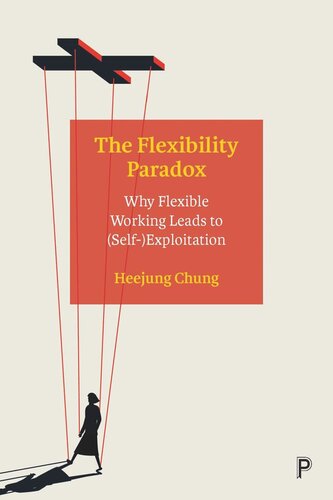

Most ebook files are in PDF format, so you can easily read them using various software such as Foxit Reader or directly on the Google Chrome browser.
Some ebook files are released by publishers in other formats such as .awz, .mobi, .epub, .fb2, etc. You may need to install specific software to read these formats on mobile/PC, such as Calibre.
Please read the tutorial at this link: https://ebookbell.com/faq
We offer FREE conversion to the popular formats you request; however, this may take some time. Therefore, right after payment, please email us, and we will try to provide the service as quickly as possible.
For some exceptional file formats or broken links (if any), please refrain from opening any disputes. Instead, email us first, and we will try to assist within a maximum of 6 hours.
EbookBell Team

4.3
48 reviewsDoes flexible working really provide a better work-life balance? Throughout the COVID-19 pandemic, flexible working has become the norm for many workers. This volume offers an original examination of flexible working using data from 30 European countries and drawing on studies conducted in Australia, the US and India. Rather than providing a better work-life balance, the book reveals how flexible working can lead to exploitation, which manifests differently for women and men, such as more care responsibilities or increased working hours. Taking a critical stance, this book investigates the potential risks and benefits of flexible working and provides crucial policy recommendations for overcoming the negative consequences.